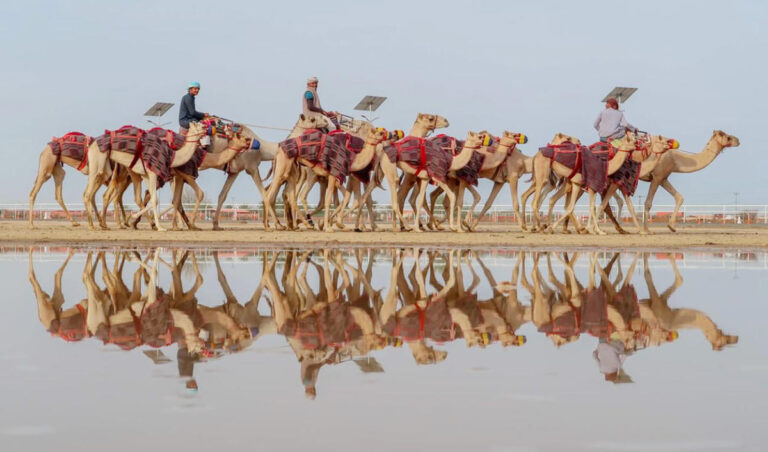Over 40 contestants are banned from a Saudi camel beauty contest over Botox facelifts
“Beauty is pain,” as the saying goes. Be it cramping your feet into a pair of toe shoes or sucking in your stomach so much that it forms scar tissue, beauty also comes at a cost. I need you to think bigger than cellular beauty and downing fulvic acid to make your skin clear. There’s a plethora of toxic and harmful trends that plague our society, and I have discovered that there’s another afoot as we speak. In the name of beauty, people are injecting camels with Botox to win competitions. Say what?
On 1 December, a Saudi Arabian camel beauty contest disqualified over 40 camels after their breeders were caught injecting their heads, noses and lips with hormones, fillers and facelifts. The month-long event involved judging the camels based on a wide variety of aesthetic areas on their facial features, humps and posture
Now, I was never a fan of Toddlers and Tiaras or the reign of reality beauty queen Honey Boo Boo, but I did have an insatiable thirst for Dance Moms and all things glitz and glamour that the world of cosmetic competitions certainly carries too—which I’m sure many of you are just as fascinated by. It’s no surprise then that the beauty world extends its candidates beyond humans by including pretty much every animal you can think of—yes, including camels. If you thought the lunacy stopped at gen Z’s obsession with baby botox, you were wrong. It seems camels are also getting touched up too.
According to a report released by The Associated Press (AP), dozens of camels from King Abdulaziz Camel Festival, held in the country’s capital Riyadh, were pulled out of the race after judges found artificial enhancements in their faces. The month-long camel festival is said to include an estimated 33,000 participants. The display is at the heart of the massive extravaganza, which also features camel races, sales and more—typically to showcase thousands of dromedaries. The procession seeks to preserve tradition and the camel’s treasured role in the kingdom’s Bedouin heritage, in the midst of the oil-rich country making modernist strides.
Camel breeding is a multimillion-dollar industry and competitions like this aim to exhibit the best of the best—la crème de la crème, if you may. However, many breeders have taken to achieving top spot with facelifts and Botox injections, both of which are strictly prohibited for obvious reasons.
The underhanded alterations were uncovered by using “specialized and advanced” technology, as Insider noted. The AP cited an announcement by the state-linked Saudi Press Agency (SPA), which detailed that authorities found out the breeders inflated their body parts with rubber bands and completed more work on their faces—such as stretching the facial features of the camels and pumped them up with Botox to enlarge their heads and lips, and topped it all off with adding fillers to relax their facial muscles.
The breeders went to pretty great lengths to put their camels on the pedestal, and it’s obvious why, since the contest awards $66 million (£50 million) in prizes, according to the media outlet Al Arabiya News. “The club is keen to halt all acts of tampering and deception in the beautification of camels,” the SPA further noted, adding that those who try to manipulate their camels’ features will face “strict penalties.”
Ali Al Mazrouei, the son of an Emirati camel breeder, shared his thoughts on the situation to local paper The National, “It makes the head more inflated, so when the camel comes, it’s like, ‘Oh, look at how big that head is. It has big lips, a big nose’.” This isn’t the first time camels have been caught up in a cosmetic procedure scandal either. In 2018, 12 camels were disqualified from the same competition for receiving lip injections in the lower halves of their faces.
While this year’s camel competition continues showing off its prettiest pageant participants, it’s safe to say I won’t be taking any tips from the desert-native animals for my makeup routine anytime soon





